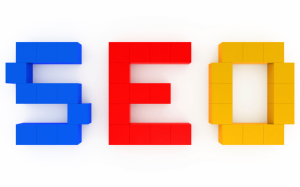 Now it needs to be said here that no one really knows everything that goes into how Google indexes different websites. That’s what the Internet is basically, a giant index that returns results prioritized according to the way it is indexed. It’s believed that not even a single person at Google knows everything about their algorithm because different aspects of it are compartmentalized and by design not shared. It may even be the case that some of it is automated so literally no human really knows for sure, but that last part is conjecture. What we do know is that if no single person at Google knows for sure, certainly any marketer or SEO expert who claims to know is probably lying.
Now it needs to be said here that no one really knows everything that goes into how Google indexes different websites. That’s what the Internet is basically, a giant index that returns results prioritized according to the way it is indexed. It’s believed that not even a single person at Google knows everything about their algorithm because different aspects of it are compartmentalized and by design not shared. It may even be the case that some of it is automated so literally no human really knows for sure, but that last part is conjecture. What we do know is that if no single person at Google knows for sure, certainly any marketer or SEO expert who claims to know is probably lying.
But Google does share some information, and other information can be found out through exhaustive testing. So these are some things we are able to say with a very high degree of certainty at this point.
- They look for the purpose of the website. This might be to inform, sell, entertain, whatever it happens to be. They then look at keywords and determine if your keywords support the overall goal of the website. If you are selling something your content should be about that thing. If you are a news site it will look for regularly updated headlines. Basically, it should fit the purpose of the site in language, design, even the links.
- That is true for individual pages as well. If you have an about page for example, they will look for indications that the page is actually talking about your company. You will be ranked higher when your site content directly reflects the purpose of the specific pages within.
- Quality goes further than grammar and punctuation. Google looks for originality and the way things are presented online. You probably are aware by now that Google penalizes websites that plagiarize material, but material that looks similar also does not perform as well.
- Updates are always good (as far as searchability goes), but not every company has reason for constant updates and that is okay because, as mentioned, they are categorized. So a news website would be hurt a lot more if they never update than a restaurant website would . So, update when you can, when it is relevant, but you don’t necessarily have to force updates.
- Page layout is now part of Google’s algorithm according to the data. They look for usability and penalize things like top-heavy graphics and poor navigation. Basically, Google likes sites that are easy for users to immediately understand and that makes it easy for users to find what they need within that site.


